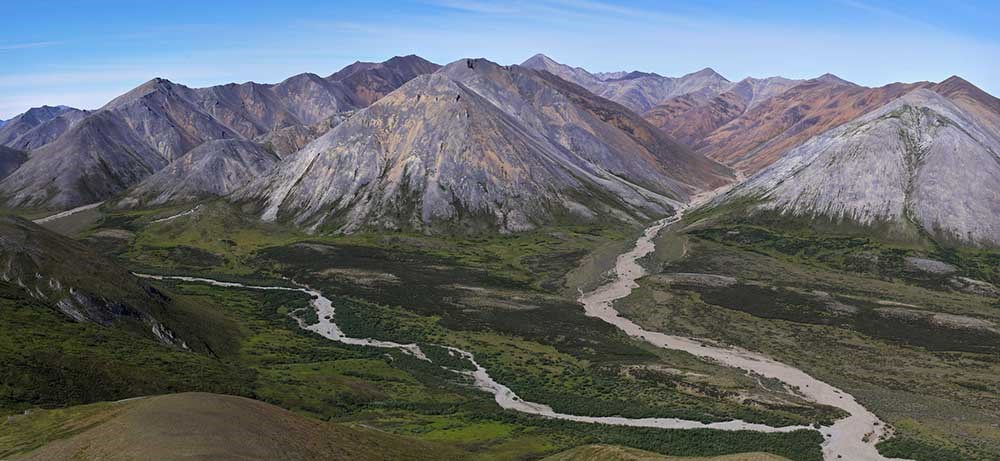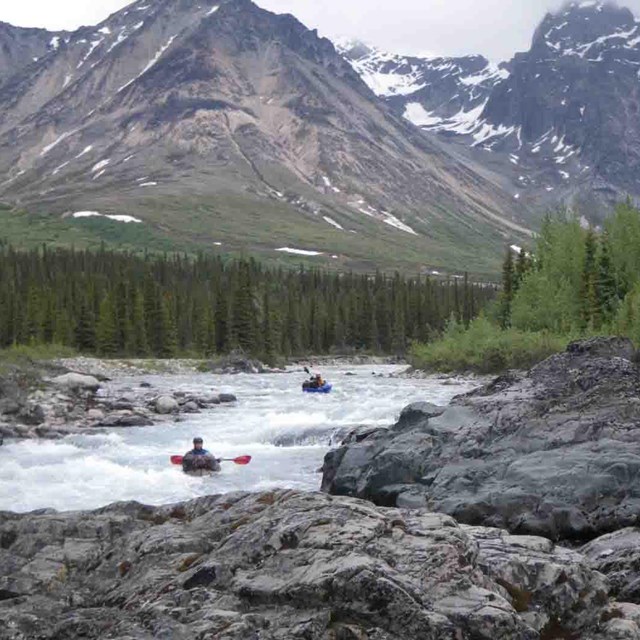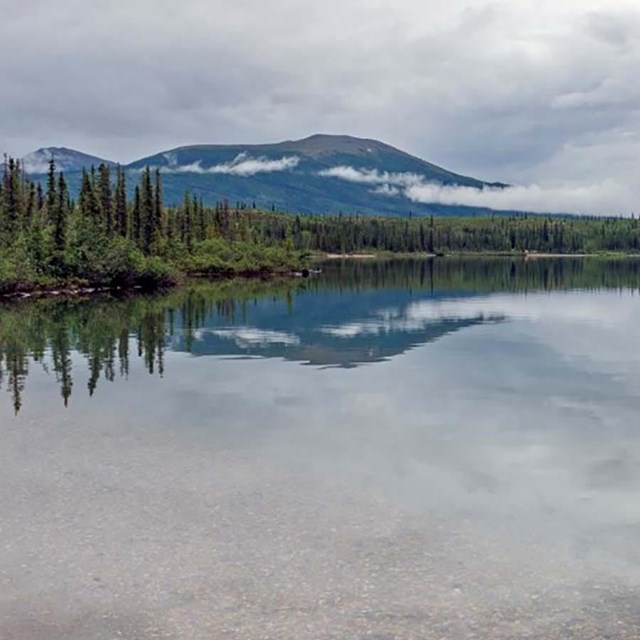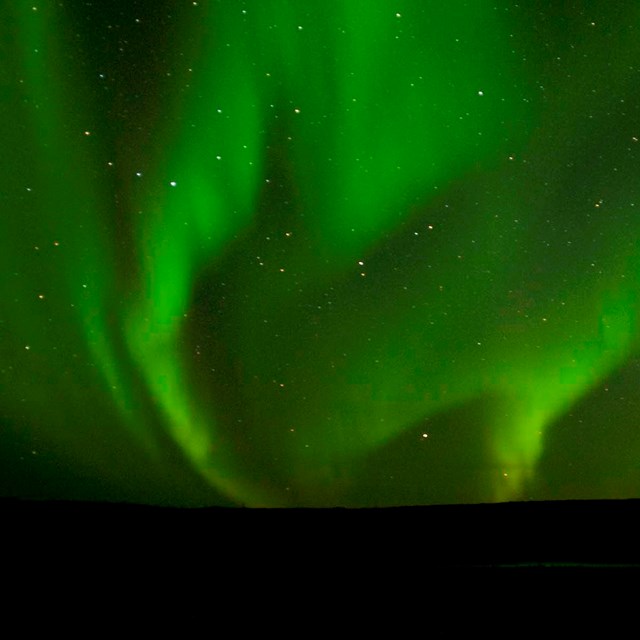
Alaska is one of the few places in the United States that has large, intact natural landscapes, this is particularly true in the Arctic. Gates of the Arctic National Park and Preserve, Kobuk Valley National Park, and Noatak National Preserve together have over 13 million acres of designated wilderness. Across the Arctic parks (including the sub-Arctic Bering Land Bridge), there is an additional 6 million acres that is eligible for wilderness status. These large areas allow ecosystems to function naturally. This includes mass migrations of caribou and the natural disturbance of fire that creates a mosaic of vegetation communities. Large, naturally functioning ecosystems are also more resilient to and allow species to better adapt to climate change, which is important, since the Arctic is warming at more than twice the global rate.
-
 Wild and Scenic Rivers
Wild and Scenic RiversExperience wild and scenic rivers.
-
 Soundscapes
SoundscapesSome places in Arctic parks are the quietest in the whole National Park System.
-
 Night Skies
Night SkiesIn the land of the midnight sun, summer skies are anything but dark. In the winter, night skies come alive.
Last updated: August 15, 2019
